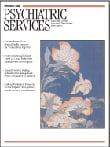Trial Consulting
Amy Posey and Lawrence Wrightsman's book, Trial Consulting , takes a comprehensive and provocative look at the field of trial consulting in the United States. In a book rich in data and details surrounding the most critical phases of trial practice, Posey and Wrightsman rip open the mystique surrounding this profession and raise some important issues as to the direction in which it should move.
One of the primary overarching themes of Trial Consulting is related to the message that if this profession is going to be viewed as credible and relevant in a social science context, there must be both research performed and evidence shared. The authors tell of a field bursting in popularity wherein most high-level law firms would not think of trying a case without the benefit or utilization of a trial consultant in some form. The authors raise a great question as to just how one defines the role, functions, and expertise of people currently in the field.
Trial consulting is a service mostly provided to the wealthy, and the book not so subtly makes the case that consumers must beware. Who one is retaining, with what experience, and with what degree of success is almost impossible to corroborate or document. Confidentiality and secrecy surrounding this field persist. Trial consultants are often self-proclaimed, and what elements qualify a person as competent in the field and how a law firm accurately assesses credentials are open questions.
The field has no regulations. A fairly loose but growing professional association has no professional standards of membership or ethics code. The range of disciplines of practitioners in the field is vast. Consultants include lawyers, psychologists, marketers, and anyone professing some expertise to offer.
The authors do an excellent job of outlining major areas where trial consulting is most often used. From mock trials to change in venue polling to witness preparation, any law student in trial advocacy or trial attorney will benefit from the wealth of facts and research provided in this book.
The most fascinating parts of the book relate to jury selection and deliberations and discussions of the use of trial consultants in some of this country's most high-profile cases. The descriptions of the failure of proper witness preparation in the historic Triangle Shirtwaist trial of 1911 and of the first use of psychologists as trial consultants in the Harrisburg Seven trial in 1972 are exciting reads. Trial Consulting reveals first hand how well-intended trial strategies—such as jury sequestration in the O.J. Simpson trial—actually had an overt negative impact on jurors.
This book is multidimensional and valuable to a wide audience, from forensic experts to law students, attorneys, and judges. Trial Consulting is an eye-opener that reminds us that the field of trial consulting is still evolving and that for now the consumer should beware.



